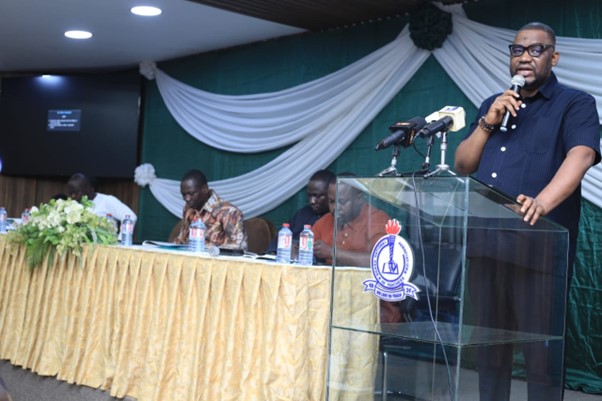By Konrad Kodjo DJAISI
In the last ten years, there has been a significant decline in decent work not just in the mining sector, but the Ghanaian economy, and this is caused largely by a marked shift in the nature of employment away from standard or permanent employment, to non-standard forms of employment, including temporary work, casualisation and fixed term contract work.
These concerns were expressed by the General Secretary of the Ghana Mineworkers Union (GMWU), Abdul-Moomin Gbana, on the occasion of the second-half National Executive Council meeting for the year 2024 in fulfilment of Article 8.3 of the Constitution of the Ghana Mineworkers’ Union held late last month.
According to the GMWU GS, as a result of this significant shift, workers now have lower levels of employment protection, high degrees of uncertainty and face higher risks in respect of workplace accidents or injuries.
It is against this backdrop that the Ghana Mineworkers’ Union staged a spirited campaign over the past five years, calling government’s attention to the urgent need to review the current Labour Act 2003 (Act 651) to deal comprehensively with the implementational gaps and challenges to make it responsive to the changing needs of the actors in the industrial relations space.

“We are, therefore, calling on the President of the Republic to cause the passage of the New Labour Bill into law before he leaves office on 7th January, 2025”.
Mr. Gbana went on to add that the African Union estimates that 25 percent of the GDP of African states, or some US$148billion, is lost to corruption every year on the continent.
“Illicit flows are a significant source of domestic resource leakage, which depletes foreign currency, lowers tax revenues, inhibits foreign investment, lowers government capital and social spending, and ultimately worsens poverty in the world’s poorest developing nations,” he noted.
Therefore, a much firmer hold on corruption would guarantee a much fairer and just society for all, including trade unions and their members.










